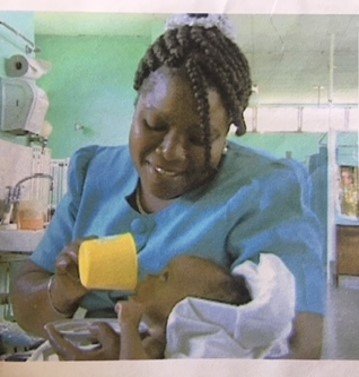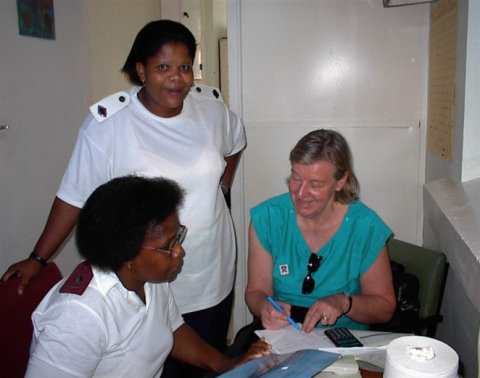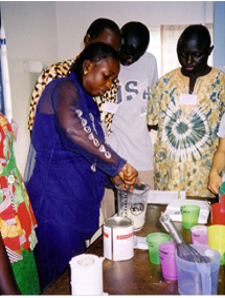Reflections for International Women’s Day
As International Women’s Day was approaching, my thoughts drifted to women who have made an indelible impression on me.
My first job as a nutritionist was in 1964, at a pioneering malnutrition research unit in Jamaica. It was there that I gained the knowledge and skills needed to treat childhood malnutrition, and which I have endeavoured to impart to others – an activity that has taken me to countries in Asia, Africa and South America.
Could I have swapped places?

In Jamaica, one of my abiding memories arose from visiting the homes of children who had been treated in our malnutrition ward. After recovery, the children were seen at regular intervals at home.
Houses were small, often of wattle and daub, but the living space would be clean and tidy, the wooden floor polished and children playing outside. Often, mothers of malnourished children are castigated as neglectful and uncaring but the mothers I have met have struggled hard to feed and clothe their children.
I used to wonder how I would manage if I had to swap places. Could I have washed and pressed school uniforms every night (as each child only owned one set), carried water, chopped firewood, cooked meals in a three-legged pot, polished the floor with a coconut husk etc? I remember these women humbly.
This is desperate!

In South Africa – my first visit – I was invited to a hospital that had very high mortality among their severely malnourished children. I had been introduced to staff as an ‘international expert’ so there were high expectations!
As the door to the tiny ward opened, I saw many apathetic malnourished children sitting on the floor in a corner, and the sickest children were three to a cot. There were few resources…and there was no running water.
I felt out of my depth and I recall a sudden sense of imminent failure. But as we sat together, new possibilities emerged and training followed, and this was later extended to other hospitals.
I think of the nurses who became trainers themselves and helped others. I remember their testimonials describing distressing situations in their hospitals that they had managed to overcome and the satisfaction they experienced by implementing the ‘10 Steps’ for treating severe malnutrition. At one hospital, the case fatality rate fell from 45% to 6%. These were inspirational women and the progression from external trainers to ‘home-grown’ ones made training sustainable and scaleable.
Adapting to circumstances

I had the good fortune to work for a while with a wonderful doctor who ran a malnutrition unit in Bangladesh. In 1976 the fatality rate in her unit was 20%. She wrote to the Director of the unit in Jamaica and by following his suggestions she quickly reduced deaths to 7%.
Staff from other countries came to her for training. When a Nepalese doctor said he could not replicate her treatment as his ward was not beautiful like hers, she set up a simple area where the children were cared for on floor mats on a day-care basis to show successful treatment could be achieved in more basic settings. Later, to ease families’ burden of daily attendance, she set up a domiciliary system and trained family members how to rehabilitate children at home. Mortality was <5% in all three systems of treatment.
She set up income generating activities to lessen families’ poverty. I regard her as a wonderful embodiment of service and creativity.
Professional juggling
In my 20s a life-work balance was quite straightforward but thereafter, as for many women with children, juggling work and family responsibilities became a daily occurrence.
I do regret working in the evenings at home after the children were in bed rather than spending time with my husband, as he died prematurely and unexpectedly. If I could rewind the clock I would try for a better life-work balance.
Yet I count myself fortunate - I think of the many women who leave home before dawn and return after their children are asleep; also those who suffer the hardships of conflict and displacement and are denied work.
Internationalism
Finally my thoughts drift with fondness to my many colleagues and former students – differing in creed, race and ethnicity – and the importance of outward-looking policies and opportunities, with an open, tolerant view of the world.